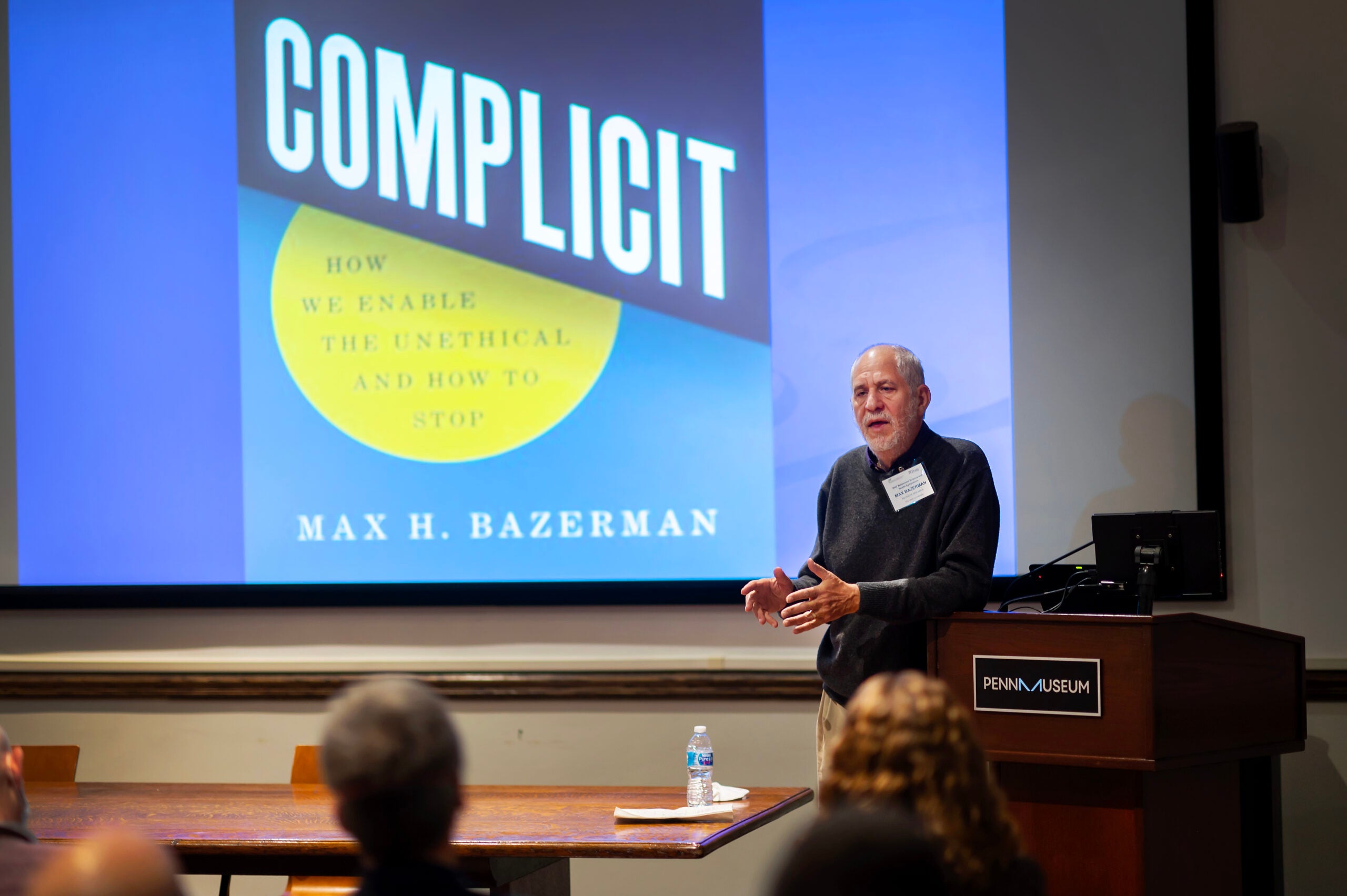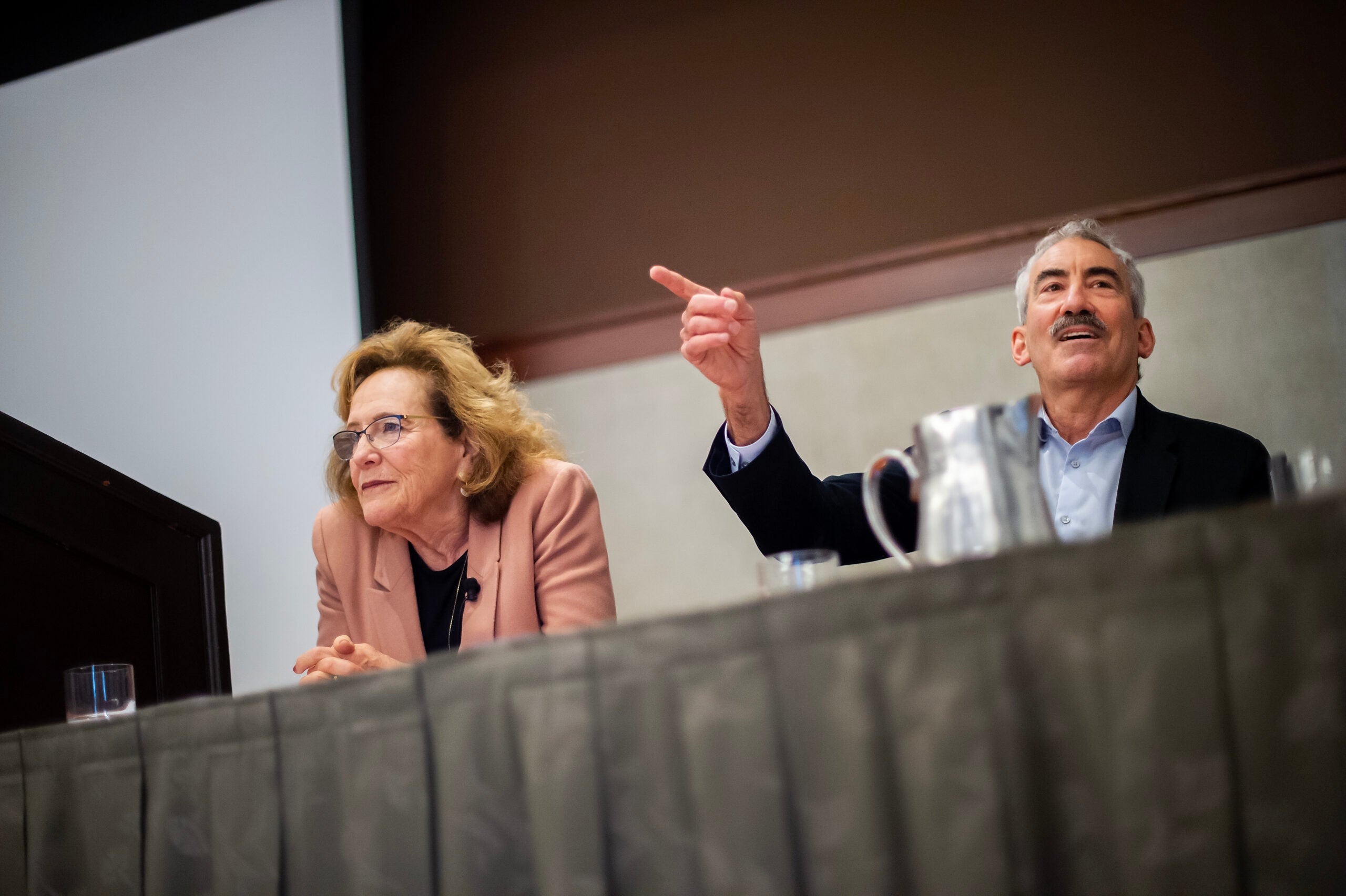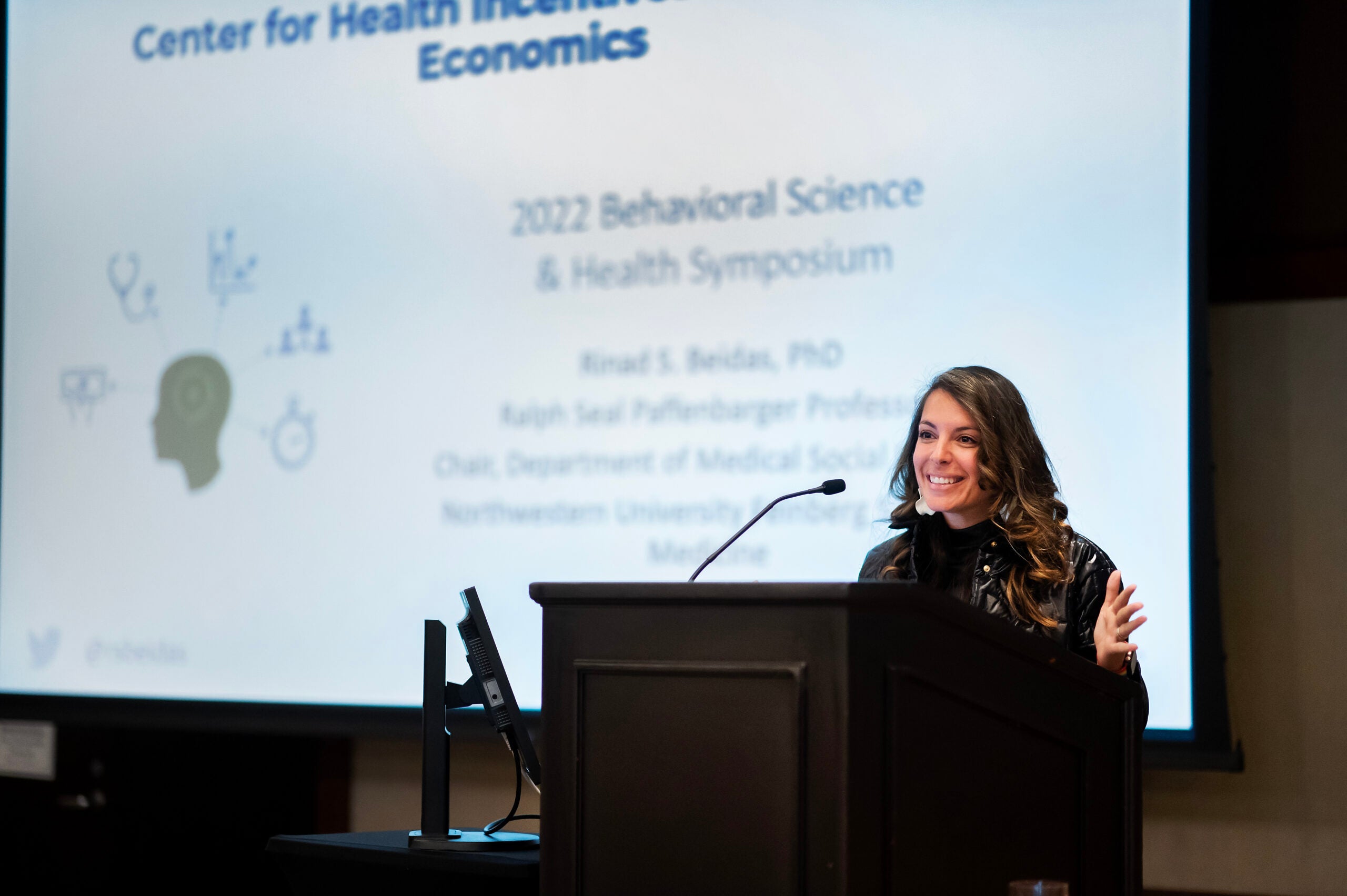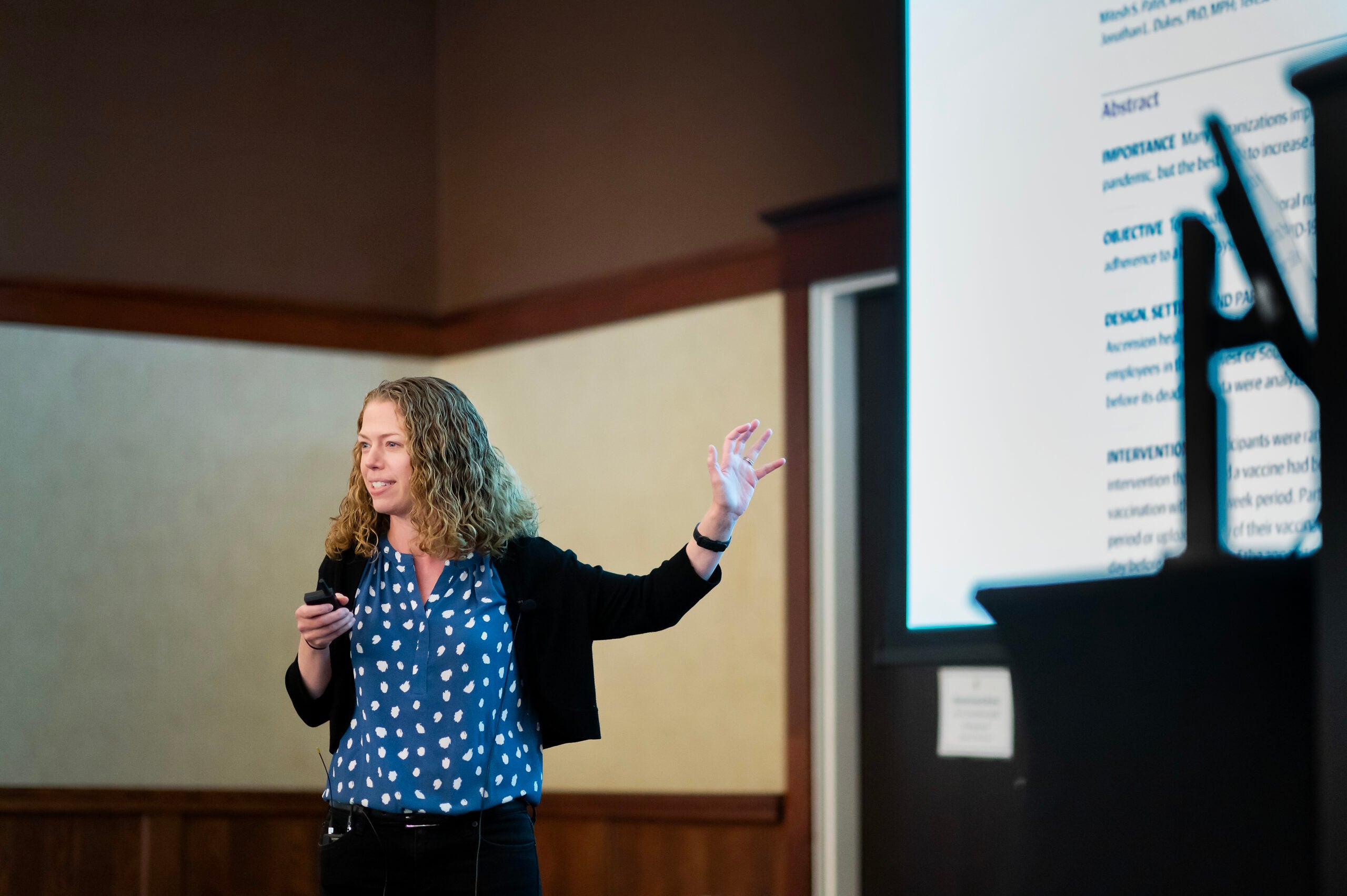CHIBE Hosts 2022 Behavioral Science and Health Symposium


Complicity, evidence adoption bottlenecks, and individual vs system-level interventions were just a few of the varied topics discussed at the 12th annual Behavioral Science and Health Symposium held this year at the Penn Museum and Inn at Penn on November 9-10, 2022.
Each year, the University of Pennsylvania’s Center for Health Incentives & Behavioral Economics (CHIBE) symposium brings together top researchers and clinicians from around the country and the globe to discuss their latest research, develop new collaborations, and exchange ideas. This year’s event featured two keynote presentations:
- Max H. Bazerman, PhD, Jesse Isidor Straus Professor of Business Administration at the Harvard Business School, spoke about complicity and its application to health care. See Dr. Bazerman’s newly released book on this topic here: “Complicit: How We Enable the Unethical and How to Stop.”
- Susan Athey, PhD, Economics of Technology Professor at Stanford Graduate School of Business, discussed shared decision-making and contraceptive choice in her keynote. Read more in her working paper here.

In addition to the keynotes and 13 research presentations, the symposium also featured a panel on a recent paper by Nick Chater, PhD, MA, and George Loewenstein, PhD, called “i-frame and the s-frame: How focusing on individual-level solutions has led behavioral public policy astray.” Dr. Loewenstein offered remarks on why he thinks behavioral economists have focused too much on nudges targeted for the individual and why behavioral scientists should use more of their expertise to catalyze system-level change. Katy Milkman, PhD, argued that behavioral economists should be using i-frame interventions far more to complement s-frame interventions. She noted that i-frame and s-frame are not substitutes and that i-frame interventions complement conventional policy tools and are more testable by researchers. Hazel Markus, PhD, also argued that i-frame and s-frame are mutually constituting and stated that “if we ignore the i-level, then we are going to be led astray.”

CHIBE Associate Director Rinad Beidas, PhD, also led a session on harnessing implementation science to maximize the impact of behavioral science on health. She encouraged the symposium attendees to consider broader use of implementation science approaches in their research, shift some of their attention toward implementation and not just discovery, and make sure that when starting a project that end-user stakeholders are involved from the beginning.
In the closing remarks, Justin Sydnor, PhD, one of the symposium steering committee members, reflected on how much progress and evolution there has been in this group and this field over the last decade. He noted the increased interest in the group toward implementation and adoption, as well as movement into systems. He encouraged the attendees to “deeply think more about the incentives and conflicts of interest and where things like industry pushes are pushing against what we might be trying to make progress on as we make system-level change.”

CHIBE offers its profound gratitude to the symposium steering committee members: Alia Crum, PhD, Stanford University; Jeff Linder, MD, MPH, FACP, Northwestern University; Katy Milkman, PhD, University of Pennsylvania; Silvia Saccardo, PhD, Carnegie Mellon; Justin Sydnor, PhD, University of Wisconsin; Harsha Thirumurthy, PhD, University of Pennsylvania; and Kevin Volpp, MD, PhD, University of Pennsylvania.
CHIBE is also immensely grateful to Joelle Friedman, MPA, and Samantha Fellman for their planning efforts.
To see more photos from the Behavioral Science and Health Symposium click here. For more coverage, check out the hashtag #BEandHealth22 on Twitter.
Photos courtesy of Eric Sucar.
